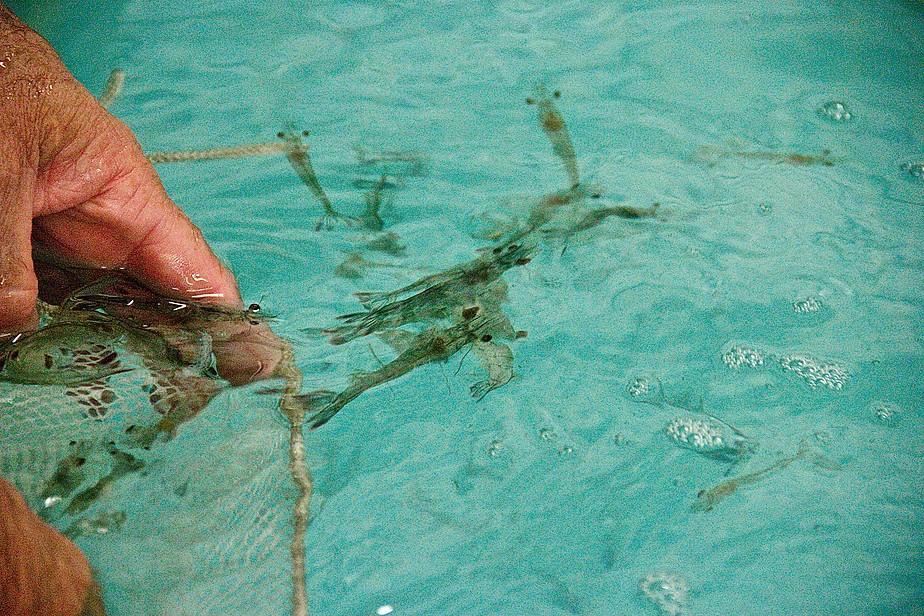
The Hudson Valley is many things. The region is a perfect contrast from the crowded chaos of New York City and its suburbs in the outer boroughs and New Jersey. Lush emerald landscapes that turn into bold red, orange and yellow hues connect historic towns that take you back as far as the 18th century. The majesty of West Point and the country club vibe of FDR’s mansion are among the many reasons why it is easy to extend one's visit here.
What we do not associate with the Hudson Valley is farmed shrimp and sustainable aquaculture. But Jean Claude Frajmund could change that perception and inspire others to grow food sustainably and responsibly in this region and beyond.
The global shrimp industry has grown rapidly over the past two decades. New farming techniques and advances in cold storage and transportation have made this crustacean more accessible and popular with consumers. Many who cannot even stand the sight of shellfish will happily gobble up shrimp. But the impact that shrimp imposes on people and the environment is often a detrimental one.
The World Wildlife Fund (WWF) estimates that Americans eat four pounds of shrimp each year on average. To match that demand, several governments in Asia and Latin America have promoted farmed shrimp as a path to economic development and poverty alleviation. But the results were often damage to fragile ecosystems and water pollution. Add the industry’s links to human rights abuses and slave labor, and the consumption of shrimp poses a massive ethical dilemma.
To that end, Frajmund launched Eco Shrimp Garden last year in Orange County, New York. The company’s first project contains scores of indoor pools inside a retrofitted mattress factory in the town of Newburgh. According to the company, its Pacific white shrimp is raised without any antibiotics, chemicals or hormones. The plant recycles all of its water, and the shrimp are fed a diet similar to what they would eat in the wild. After they are processed, the shrimp are delivered fresh, never frozen, as far as New York City, 66 miles south of Newburgh.
Eco Shrimp Garden sells its 16- to 20-count shrimp for about $25 a pound, a competitive price for those who eschew the cheaper imported shrimp grown in dubious conditions. So far, the company says it sells about 300 pounds of shrimp a day with demand continuing to surge. Frajmund’s investment in turn is generating jobs in this town of 28,000, where unemployment, as in much of upstate New York, is higher than the national average.
Frajmund, who is originally from Brazil, embarked upon a long career journey before he settled in Newburgh. He started as an information technology staffer for the Brazilian government before working as a cameraman throughout Europe during the 1990s. After returning to Brazil, he started a production company and eventually became a vice-minister within Brazil’s communications agency. He spent the past decade going back and forth between Brasilia and New York before deciding to invest in what is now New York State’s first indoor shrimp farm. His venture, a huge divergence from his previous work, has started to attract more media attention, including a recent interview on National Public Radio.
Aquaculture has garnered its fair share of critics, who have charged that lax oversight, the reliance on antibiotics and crowded conditions for shrimp and fish can create more problems than it solves. But if managed responsibly, farmed fish and seafood are a tool in the kit that the world needs if it is going to sustain a growing, and more affluent, population.
Image credit: Eco Shrimp Garden

Leon Kaye has written for 3p since 2010 and become executive editor in 2018. His previous work includes writing for the Guardian as well as other online and print publications. In addition, he's worked in sales executive roles within technology and financial research companies, as well as for a public relations firm, for which he consulted with one of the globe’s leading sustainability initiatives. Currently living in Central California, he’s traveled to 70-plus countries and has lived and worked in South Korea, the United Arab Emirates and Uruguay.
Leon’s an alum of Fresno State, the University of Maryland, Baltimore County and the University of Southern California's Marshall Business School. He enjoys traveling abroad as well as exploring California’s Central Coast and the Sierra Nevadas.














